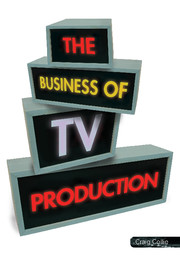Book contents
- Frontmatter
- Contents
- Preface
- Diagrams and tables
- Abbreviations
- Part A Opiate of the people: the television industry
- Chapter 1 Origins and growth of a global medium
- Chapter 2 The digital revolution
- Chapter 3 The industry in Australia
- Chapter 4 Television genres
- Part B Massage parlour: development and funding of a project
- Part C Riding the tiger: management of the production
- Part D A nod to the gatekeepers: the environment of television
- Index
- References
Chapter 4 - Television genres
Published online by Cambridge University Press: 05 June 2012
- Frontmatter
- Contents
- Preface
- Diagrams and tables
- Abbreviations
- Part A Opiate of the people: the television industry
- Chapter 1 Origins and growth of a global medium
- Chapter 2 The digital revolution
- Chapter 3 The industry in Australia
- Chapter 4 Television genres
- Part B Massage parlour: development and funding of a project
- Part C Riding the tiger: management of the production
- Part D A nod to the gatekeepers: the environment of television
- Index
- References
Summary
Television content, as with cinema, can be broken into a number of different genres – groupings of like programs or films – although the purpose and groupings are largely different for each medium. Film genres are the product of screen culture study. They describe differences of content in terms of style and subject matter, but there isn't necessarily a difference in the mode of production. The machinery to produce a comedy film is essentially the same as that for a film noir work, although the films themselves are recognisably different.
Television genres are more practical and group programs by production mode. The content may be different as a result of different production machinery, but not necessarily. Clearly there are differences between drama and current affairs in content as well as approach to production, but the content can be much the same, for example, in documentary and magazine-format programs. Nonetheless, the approach to production will determine style and content to a considerable degree. Generally, different subjects are best served by particular production modes and are usually dealt with in a particular genre.
The genres outlined in this chapter are those conventionally used in television at the present time. There is no hard and exclusive definition of any genre. They overlap. Genre is a convenient means of describing a production by stereotype.
- Type
- Chapter
- Information
- The Business of TV Production , pp. 60 - 76Publisher: Cambridge University PressPrint publication year: 2007



